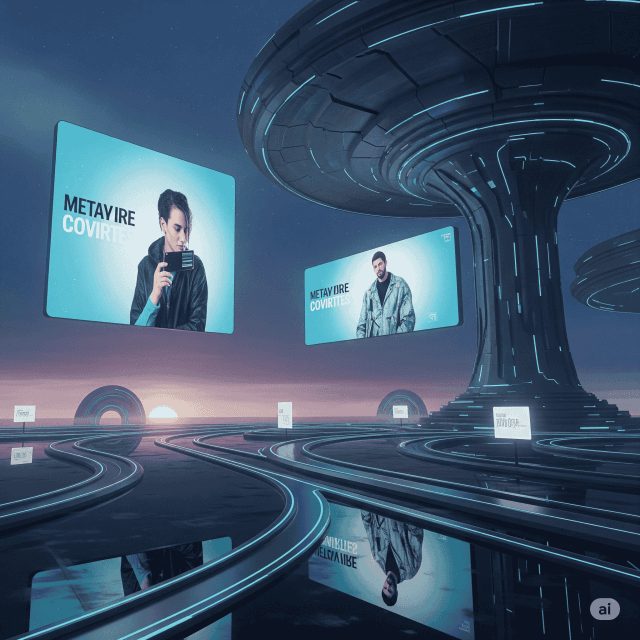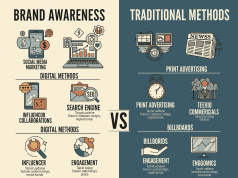The Metaverse, a collective virtual shared space, has become a buzzword in digital culture and technology. As we move toward 2025, the evolution of the Metaverse presents unique opportunities and challenges for advertisers and brands. This article explores how advertising will likely transform within the Metaverse by 2025, encompassing advancements in technology, user experience, and ethical considerations.
What is the Metaverse?
The Metaverse is often described as a convergence of virtually enhanced physical reality and persistent virtual reality, where users can interact with a computer-generated environment and other users. It encompasses various technologies, including augmented reality (AR), virtual reality (VR), and blockchain, providing a rich, immersive experience that transcends traditional platforms.
The Shift in Consumer Engagement
As the Metaverse gains traction, consumer engagement will evolve significantly. By 2025, brands will likely leverage immersive experiences to foster deeper connections with their audience. Traditional ads may give way to interactive experiences that allow users to engage with products in real time.
1. Immersive Advertising
In the Metaverse, advertisements won’t just be billboards or pop-ups. Imagine a scenario where users can experience a car by taking it for a virtual test drive in a realistic environment. Brands can create entire worlds that showcase their products, making advertisements feel less intrusive and more like an experience.
2. Personalized Experiences
With the integration of AI and big data, personalization will reach new heights. By analyzing user behaviors, preferences, and interactions in the Metaverse, brands will be able to create tailored experiences that resonate with individual users. This level of personalization can foster brand loyalty and increase conversion rates.
Integration of E-Commerce
E-commerce will undergo a transformation within the Metaverse. By 2025, users will be able to shop within virtual worlds, picking products off virtual shelves and trying them on digitally.
1. Virtual Stores
Imagine walking through a digital mall where each store offers an interactive experience tailored to your preferences. Brands will set up virtual storefronts that mimic real-world shopping experiences, allowing customers to explore, test products, and complete purchases, all within the Metaverse.
2. Cryptocurrencies and NFTs
Cryptocurrencies and non-fungible tokens (NFTs) will play significant roles in the Metaverse economy. Advertisers may accept cryptocurrencies as payment and utilize NFTs for limited edition digital products, exclusive access, or unique virtual experiences. This trend will redefine ownership and exclusivity, offering brands new ways to engage consumers.
The Role of Influencers
Influencer marketing will adapt to this new landscape, with virtual influencers gaining prominence. By 2025, brands will likely collaborate with both real-life and digital avatars or virtual characters that resonate with target audiences, blurring the lines between reality and virtuality.
1. Avatar Branding
Avatars will become the new faces of brands. Advertisers can create and promote unique avatars that embody their brand values, allowing users to connect with these characters in meaningful ways. This can range from virtual assistants representing a brand to fully realized avatars that engage with users in various environments.
2. Community-Driven Marketing
In the Metaverse, community will be a significant driver of advertising success. Brands that foster communities will see higher engagement, as people naturally gravitate toward shared interests. Community-generated content and user experiences will shape perceptions, making authenticity more critical than ever.
Ethical Considerations
As advertising evolves in the Metaverse, ethical considerations will come to the forefront. Data privacy, consent, and inclusivity will be paramount.
1. Data Privacy
With vast amounts of data collected from users’ interactions in the Metaverse, brands will need to prioritize ethical data practices. Transparency in how data is used and ensuring user consent will be critical to maintaining trust.
2. Inclusivity and Representation
Brands must also navigate the complexities of representation within virtual spaces. By 2025, there will be an ongoing discussion about inclusivity in avatar design and advertising practices, with an emphasis on representing diverse communities.
Conclusion
As we approach 2025, the intersection of the Metaverse and advertising promises to reshape the landscape of consumer engagement. By embracing immersive experiences, personalization, and community-driven approaches, brands can create meaningful connections with their audiences in this evolving digital realm. However, navigating the ethical implications will be just as crucial for ensuring a sustainable and responsible advertising ecosystem in the Metaverse. As we step into this new frontier, one thing is clear: the future of advertising is not just about selling products; it’s about crafting experiences that resonate deeply within the digital fabric of our lives.









